
Show: The Wind in the Willows
Society: Chichester Festival Theatre (professional)
Venue: Festival Theatre. Chichester Festival Theatre, Oaklands Park, Chichester, West Sussex, PO19 6AP
Credits: By Kenneth Grahame. Adapted for the stage by Alan Bennett. Music and Additional Lyrics by Jeremy Sams.Performed by Chichester Festival Youth Theatre
The Wind in the Willows
4 stars
The company in Chichester Festival Youth Theatre’s ‘The Wind in the Willows. Photo: Manuel Harlan
Some directors are magicians. And it is on ongoing mystery to me how talented Dale Rooks gets this astonishingly high standard of professionalism from a youth theatre cast. As I’ve said, more than once before, Chichester Festival Theatre really does run one Britain’s finest youth theatres. It is, moreover, testament to all concerned that CFT turns its main house over to the youth theatre for what becomes the theatre’s annual Christmas show with all the high production values it would afford any other show.
Alan Bennett’s witty, upbeat but respectful take on Grahame’s episodic tale of highly anthropomorphised river bank animals was originally written for National Theatre thirty years ago and remains one of the best adaptations. It allows for a big ensemble cast and plenty of music – played beautifully here by an unseen six-piece live band led by MD, Colin Billing.
The main roles are shared but on press night I saw Milena Harrison as Mole, quivering, anxious, learning to enjoy fun and always putting forward a commonsense view. She’s a delight to watch. So is Spencer Dixon’s camp, effete and very decent Rat who towers over her in an avuncular way.
Jack Keane, as Toad, commands the stage with excess, outrageousness and fabulous movement work. He’s quite an actor to watch. Alfie Ayling’s badger is more loveable and less curmudgeonly than some interpretations but enjoyable nonetheless. And Edward Bromell as Albert, the lugubrious, bolshy horse who objects to being smacked on the bottom and likes a quiet read when he’s allowed one, is so entertaining that he almost deserves a show of his own.
Other high spots include Lucy Campbell as a cheerfully gor-blimey Otter and Milly Fryman singing a 3|4 music-hall style number as the Barge Woman and getting the Marie Lloyd vibe perfectly.
The ensemble sings and dances well in various combinations and threads mysteriously in and out of Simon Higlett’s magnificent set which comprises green willows which open to admit other settings such as Toad Hall, Badger’s House, the barge, the train and so on. And neatly woven into this is a hint of recycling and a reminder of scale. Toad Hall is, actually, a grand old teapot. Ratty’s boat is a sardine tin which he rows with cotton buds.
Not only does the ensemble of mice, rabbits, foxes, weasels, ferrets and the like sound terrific – sometimes singing in four parts – but it looks gorgeous too. Ryan Dawson Laight’s costumes are a delight: from the baggy brown trousers and big tail for Mole to the huge round ears for the mice, some of whom are very tiny, and the big red bushy tails for the foxes. Each and every one of them encapsulates the animal’s most prominent characteristics.
It really is a fine and uplifting evening’s theatre. Catch it if you possibly can.
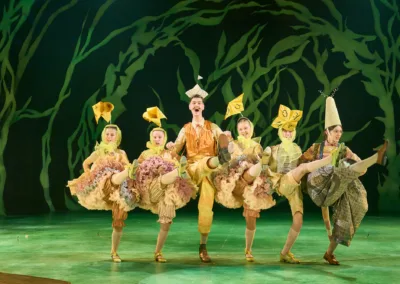
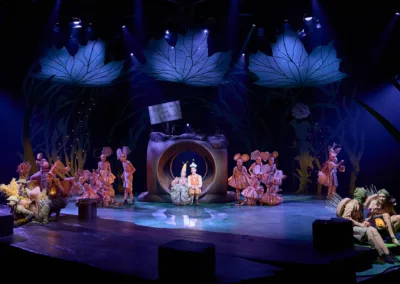

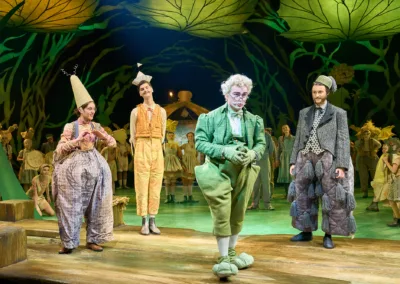
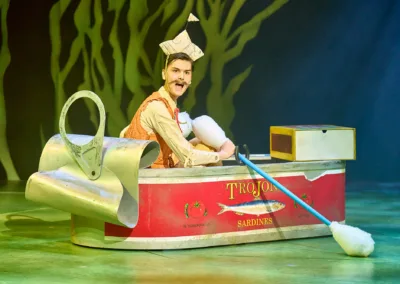
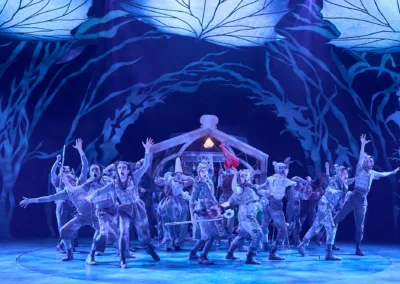


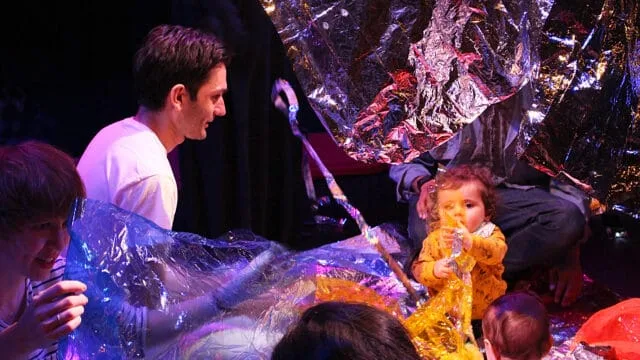
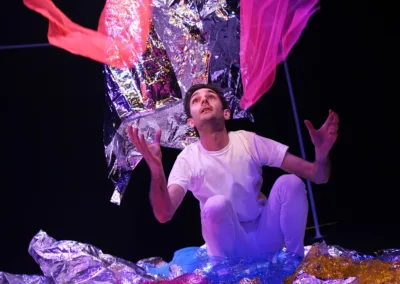

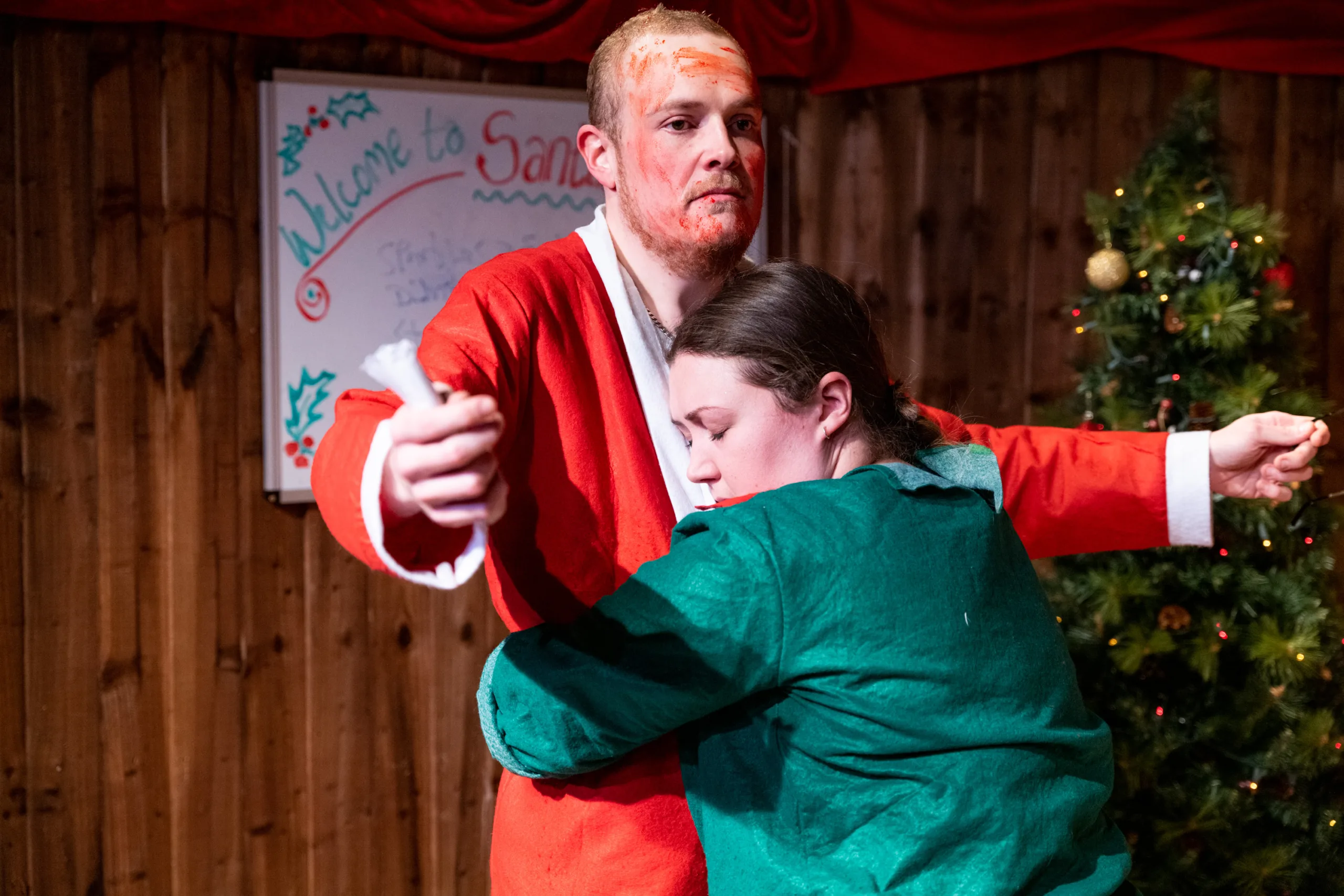
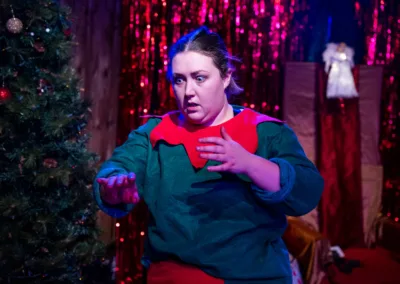

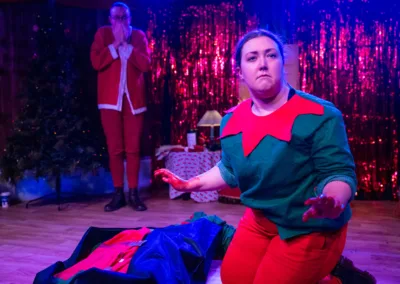



 replacing …
replacing …